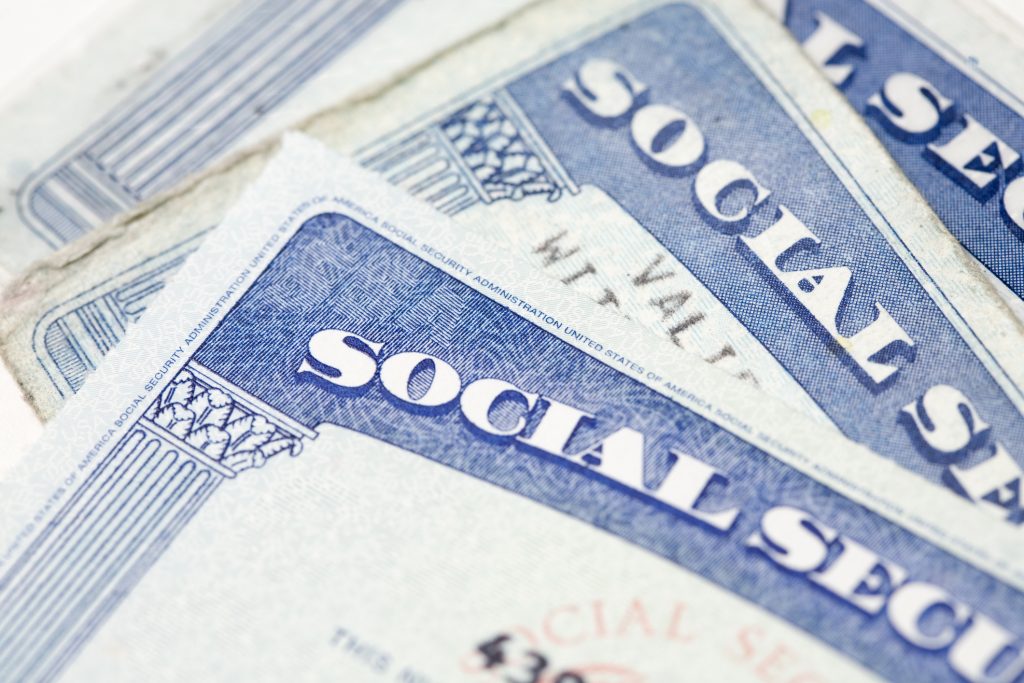Social Security is an essential piece to most American’s retirement plans. Without their monthly benefits, some 16.3 million seniors U.S, would be living below the poverty line, according to the Center on Budget and Policy Priorities. And even for those above the poverty line, every single penny counts for the millions of households receiving Social Security benefits.
Unfortunately, retirees living in nine states could find out they don’t get to keep all of their Social Security benefits. Their state governments tax Social Security benefits based on their income, cutting their benefits by almost 10% in some cases. Here’s what you need to know.
Start Your Mornings Smarter! Wake up with Breakfast news in your inbox every market day. Sign Up For Free »

Image source: Getty Images.
How are Social Security benefits taxed?
Before we dive into how your state government might tax your Social Security checks, it’s important for everyone who is or will be collecting these retirement benefits to understand how they’re taxed at a federal level.
The federal government uses a metric called combined income to determine what portion, if any, of your Social Security benefits count as taxable income. Combined income is equal to half your Social Security benefit plus your adjusted gross income (AGI) plus any untaxed interest income. If your combined income exceeds certain thresholds, up to 85% of your Social Security benefits become taxable.
| Taxable Portion of Benefits | Combined Income, Individual | Combined Income, Married Filing Jointly |
|---|---|---|
| 0% | Less than $25,000 | Less than $32,000 |
| Up to 50% | $25,000 to $34,000 | $32,000 to $44,000 |
| Up to 85% | $34,001 and up | $44,001 and up |
Data source: Internal Revenue Service.
If you’re not careful at managing your income, you could easily find a significant portion of your Social Security benefits become taxable. That’s because Congress didn’t include a process for adjusting the combined income ceilings for inflation when it passed the laws making Social Security income taxable in the 1980s and 1990s, and subsequent sessions of Congress have failed to address the issue. As such, more and more seniors are seeing more and more of their retirement benefits move into taxable territory.
If you want to avoid a surprise federal tax bill in April, you need to consider how retirement account withdrawals and capital gains could impact the taxation of your Social Security. But retirees in nine states have some extra considerations to worry about.
These nine states still tax Social Security
It’s not as common as it used to be for states to tax Social Security benefits, but citizens in nine states could still find their governments asking for a portion of their benefits checks. If you live in one of them, take the time to fully review how those laws apply to your personal situation and consider consulting a professional to see if there are ways to lower your tax bill.
Here are the basics for each of the nine states.
Colorado: Taxpayers 65 or older or those with adjusted gross incomes below $75,000 for individuals or $95,000 for joint filers are exempt from taxes on Social Security. Those with higher AGIs who are under 65 can deduct up to $20,000 of the amount of Social Security income included on their federal tax return. For any amount above that, they will owe a 4.4% tax.
Connecticut: Taxpayers with adjusted gross incomes below $75,000 for individuals or $100,000 for joint filers are exempt from taxes on Social Security. No more than 25% of Social Security benefits are taxable for those with higher AGIs. The applicable tax rate ranges from 4.5% to 6.99%, depending on income.
Minnesota: Taxpayers with adjusted gross incomes below $84,490 for individuals and $108,320 for joint filers are exempt from taxes on Social Security. For every $4,000 of AGI above those thresholds, the amount of Social Security benefits subject to taxes increases by 10% of the amount included on your federal return. The applicable tax rates range from 6.8% to 9.85%.
Montana: Any Social Security income included in your federal taxes is also subject to state taxes. Taxpayers over 65 receive an additional $5,660 deduction on their state taxes. The state tax rate ranges from 4.7% to 5.9%.
New Mexico: Taxpayers with adjusted gross incomes below $100,000 for individuals and $150,000 for joint filers are exempt from taxes on Social Security. All other taxpayers must pay income tax on any amount included in their federal taxes. The applicable tax rate ranges from 4.9% to 5.9%.
Rhode Island: Taxpayers with adjusted gross incomes below $104,200 for individuals and $130,250 for joint filers are exempt from taxes on Social Security. All other taxpayers must pay income tax on any amount included in their federal taxes. The applicable tax rate ranges from 4.75% to 5.99%.
Utah: Any Social Security income included in your federal taxes is also subject to taxes in Utah. However, taxpayers with adjusted gross incomes below $45,000 for individuals and $75,000 for joint filers qualify for a tax credit offsetting the taxes on Social Security income included in their federal taxes. Those above the threshold may qualify for a partial credit. The applicable tax rate is 4.55%.
Vermont: Taxpayers with adjusted gross incomes below $50,000 for individuals and $65,000 for joint filers are exempt from taxes on Social Security. Those within $10,000 of each threshold will qualify for a partial deduction. Those with AGIs exceeding $60,000 for individuals and $75,000 for joint filers will owe taxes on any amount included in their federal taxes. The applicable tax rate ranges from 3.35% to 8.75%.
West Virginia: Taxpayers with adjusted gross incomes less than $50,000 for individuals or $100,000 for joint filers are exempt from taxes on Social Security. Those with higher AGIs must pay taxes on 35% of any Social Security income included in their federal taxes in 2025. The applicable tax rate ranges from 4.44% to 4.82%. However, West Virginia will no longer tax Social Security income for anyone starting in 2026.
Where you retire matters
The decision about where to retire can have a significant impact on your life and finances in your golden years. However, that decision shouldn’t be based on taxes.
While the above states could all take a portion of your benefit checks, it’s worth pointing out that the political landscapes is always changing. Fewer and fewer states tax Social Security anymore, and the number that do will very likely decrease by at least one next year.
More important considerations for the state you choose to retire in include the cost of living, how close you’ll be to friends and family, and the community and quality of life its offers. Those factors will have a much bigger impact on your happiness in retirement than whether or not you’re paying taxes on your Social Security.
If taxes on Social Security are a big concern for you, some advanced tax planning can mitigate their impact. Effectively using Roth retirement account, managing your capital gains and losses, and keeping your traditional retirement account withdrawals low can help you reduce the taxes you owe on your retirement income. It’s best to consult a professional about your specific situation if you want to be sure to avoid surprises come tax time.
The $22,924 Social Security bonus most retirees completely overlook
If you’re like most Americans, you’re a few years (or more) behind on your retirement savings. But a handful of little-known “Social Security secrets” could help ensure a boost in your retirement income. For example: one easy trick could pay you as much as $22,924 more… each year! Once you learn how to maximize your Social Security benefits, we think you could retire confidently with the peace of mind we’re all after. Simply click here to discover how to learn more about these strategies.
View the “Social Security secrets” »
The Motley Fool has a disclosure policy.
 fool.com
fool.com benzinga.com
benzinga.com accuweather.com
accuweather.com marketbeat.com
marketbeat.com



